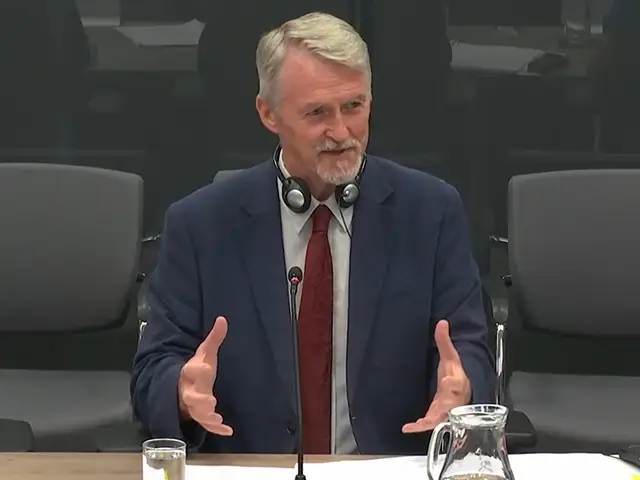WALES’ Deputy First Minister Huw Irranca-Davies provided “no clear explanation” for a seven-year delay in plugging gaps in environmental law.
Mr Irranca-Davies was questioned about delays introducing the environment bill, which aims to halt and reverse nature loss – with one in six species in Wales now at risk of extinction.
In 2018, Julie James, then-leader of the house or Trefnydd, committed to legislation at the “first opportunity” to address a governance gap left by the UK’s departure from the EU.
The seven-year delay left Wales with the weakest environmental governance structures in western Europe, according to the Wales Environment Link charity.
Alun Davies, a Labour member of the Senedd’s legislation committee, pressed the Deputy First Minister: “The question asks itself, where have you been?”
Mr Irranca-Davies replied: “We haven’t just been standing still on this. We’ve done things here in Wales they have not done in other countries.
“We’ve taken forward the clean air and soundscape legislation… we’ve moved progress on a net-zero target… we’ve responded to the climate and nature emergency… we’ve radically redirected transport investment… so we haven’t stood still.”
“Well, you have,” Mr Davies interjected during the evidence session on June 30. “Because other countries have been doing things like that as well. The idea that no other country’s got a transport policy is for the birds. It doesn’t answer the question that was asked.”

The bill would establish the Office of Environmental Governance Wales (OEGW), with similar environmental protection bodies set up in Scotland, Northern Ireland and England in 2021.
The Labour backbencher added: “The Welsh Government will have failed to do this in this Senedd by the time this gets on the statute book, so I think we are justified in seeking an explanation… as to why this has taken two Senedds to reach this point.”
Mr Irranca-Davies responded: “There is a question of prioritising but we’re making good on the commitment but I do understand when people say ‘why are you behind?’.”
He told the committee the Welsh Government has learned from experiences in the rest of the UK but Mr Davies responded: “Well that really is scraping the barrel, isn’t it? … None of what you’ve said answers the question of why it’s taken so long.”
Pressing the Deputy First Minister, Mr Davies said: “This is a serious political failure from [the] Welsh Government in terms of the years it’s taken to reach this point. And I think the committee, in all seriousness Deputy First Minister, requires and deserves an explanation.”
He remarked: “It is striking that the government doesn’t have a very clear explanation.”
Mr Irranca-Davies suggested the issue had been deprioritised: “There are reasons why we have prioritised other work first… it’s not a capacity issue, it’s prioritisation.”
The former minister warned of complexity inhibiting accountability, saying: “Sometimes the longer the explanation, the more worried somebody gets and I’m becoming a little worried.”
He pointed to complex governance with the Wellbeing of Future Generations Act 2015, “which we were told would do most of this work”, the OEGW and Natural Resources Wales.
He said: “We’ve got so many adjoining pieces of legislation which seek to each tick a particular box but I’m just left thinking: we’re just creating a monster here.”
Challenging the Deputy First Minister to write to the committee with an organigram – a chart explaining how everything fits together – Mr Davies said: “I have to say, I haven’t got a clue.”
Mr Irranca-Davies said getting everything on one A4 page would be a challenge, prompting Mike Hedges – who chairs the legislation committee – to suggest: “Well, if you can’t get it on one side of A4 then you need to think more deeply about what you’re trying to achieve.”

In a letter, the Green Alliance warned of a lack of safeguards in the bill on the independence of the OEGW which would be charged with holding public bodies to account.
The Senedd climate committee raised similar concerns during its meeting on June 26, which heard the OEGW would not be fully operational for at least another 18 to 24 months. Llŷr Gruffydd, the Plaid Cymru chair, asked: “What stops it becoming three or four years?”x
“Us, and also the fact that the work is already ongoing,” Mr Irranca-Davies replied. “I don’t think there will be any desire… to delay in any way, shape or form.”
Senedd Members warned the OEGW could be underfunded because the Welsh bill does not include the phrase “sufficiency of funding” unlike legislation elsewhere in the UK
Mr Irranca-Davies questioned who would determine what sufficiency of funding means as he insisted: “We’re crystal clear that the independence of the OEGW is crucial to its operation.”















